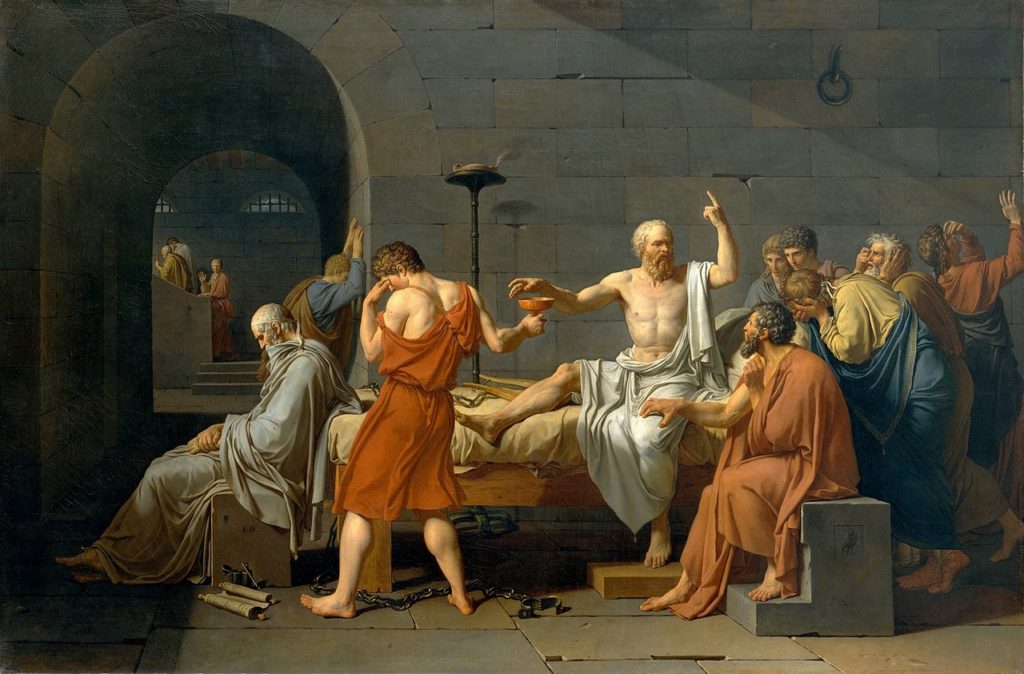As AI increasingly shapes our world, we need to consider its effect on critical thinking. The Myth of Thamus and Theuth cautions against overreliance on technology for knowledge. Cultivating human understanding alongside AI allows us to benefit from it while preserving crucial reasoning skills.
Reflecting on the potential impact of new technologies, such as generative AI, on our ability to analyze, question, and generate original ideas can help us better understand their benefits and risks.
Engaging with these ideas challenges us to consider education’s deeper purpose and the importance of fostering independent thought. It encourages us to approach technological advancements critically and prioritize the development of human wisdom and understanding.
Ultimately, exploring these concepts equips us with the tools to make informed decisions, communicate persuasively, and contribute meaningfully to our ever-changing world.
Socrates Concerns about the Invention of Writing
In Plato’s Phaedrus, Socrates recounts the Myth of Thamus and Theuth, a cautionary tale about the drawbacks of the invention of writing. According to the story, Theuth, the Egyptian god of knowledge, presents his latest invention, writing, to King Thamus, claiming that it will improve people’s memory and wisdom. However, Thamus is skeptical and argues that writing will have the opposite effect – leading to forgetfulness and the appearance of wisdom without proper understanding.
Socrates uses this story to express his concerns about the limitations and dangers of relying on written texts. He argues that writing is inferior to oral communication because it cannot be questioned, challenged, or adapted to the audience’s needs. Furthermore, he suggests that written words are merely a reminder of knowledge, not knowledge itself, and that true wisdom comes from engaging in dialogue and critical thinking.
Modern-day concerns about the use of Generative AI for writing
Socrates skepticism about writing’s impact on memory and understanding can be connected to modern concerns about using generative AI to write essays and other texts. While these AI tools can produce seemingly coherent and sophisticated content, there are valid reasons to question the generated text’s depth of understanding and originality.
A primary concern is that relying on AI-generated content may lead to a decline in critical thinking and original thought among students and writers. If individuals become overly dependent on these tools, they may fail to develop the necessary skills to analyze, question, and generate their ideas. This echoes Socrates’ worry that writing would lead to the appearance of wisdom without proper understanding.
Moreover, AI-generated content may lack the nuance, context, and personal insights that come from human experience and genuine engagement with a subject. While the output may be grammatically correct and superficially compelling, it may not capture the topic’s depth and complexity. This parallels Socrates’ argument that written words are merely a reminder of knowledge, not knowledge itself.
When we take knowledge that resides within the human mind and record it in written form, it is transformed into information.
This information does not constitute knowledge.
It requires a person - a "knower" - to interpret and process the written words, converting the information back into knowledge within their own mind.
Additionally, using AI-generated content raises ethical concerns about intellectual honesty and plagiarism. If students submit AI-generated essays as their own, they essentially present someone else’s ideas and words as their own, even if that “someone else” is a machine. This undermines the purpose of education, which is to foster independent thinking and original expression.
Embracing the Crucial Learning Experiences of Writing
All of us, especially students, need to recognize that academic and professional writing is not merely about producing a text but also about developing critical thinking skills to analyze, synthesize, and articulate ideas effectively. The process of researching, organizing thoughts, and constructing arguments is essential for cultivating a deep understanding of the subject matter and honing our ability to communicate persuasively. By relying too heavily on AI-generated content, we may miss these crucial learning experiences and fail to develop the necessary academic and professional success skills.
The Interactive Promise of Generative AI in Learning and Dialogue
Notably, generative AI presents an interesting departure from Socrates’ criticism of writing. Unlike static written texts, AI-powered tools allow us to engage in a form of dialogue by questioning and refining the generated content. This interactive aspect has the potential to mitigate some of Socrates’ concerns, as it allows for a more dynamic exchange of ideas and the possibility of adapting the output to suit its purpose better.
Conclusion
Dialogue with AI should not be seen as a substitute for genuine human interaction and the development of independent critical thinking skills. While generative AI can be a valuable tool for exploring ideas and generating initial drafts, we need to learn to critically evaluate and build upon the generated content, infusing it with our own insights and perspectives. By striking a balance between leveraging AI’s capabilities and cultivating our intellectual growth, we can harness the potential benefits of this technology while mitigating its risks.
The myth of Thamus and Theuth reminds us to approach new technologies critically and prioritize the development of human wisdom and understanding. As we navigate the challenges and opportunities of generative AI, we need to remain committed to fostering the skills and values at the heart of sound education and personal growth.
Posts that link to this post
POST NAVIGATION
CHAPTER NAVIGATION
Tags: critical thinking (49) | education (25) | genAI (8) | knowledge (64) | Plato (11) | reasoning (53) | Socrates (16) | writing (21)
SEARCH
Blook SearchGoogle Web Search
Photo Credits: Midjourney (Public Domain)
If you enjoy my work and find it valuable, please consider giving me a little support. Your donation will help cover some of my website hosting expenses.
Make a donation


